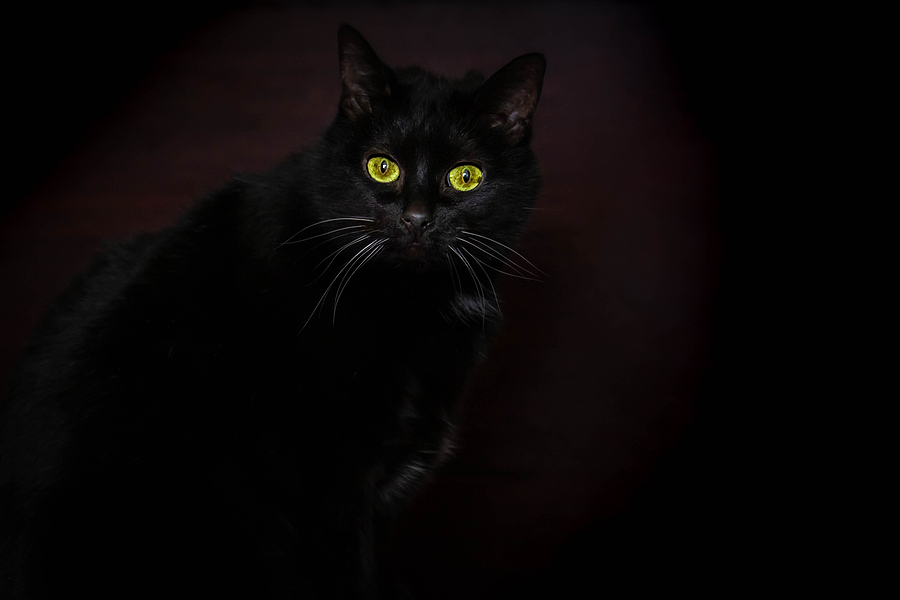A reader wrote asking whether all cats’ eyes glow in the dark. They do, and here’s why.
Q: My cat’s eyes seem to glow in the dark. Do all cats’ eyes do that?
A: Their large, luminous eyes are one of the finest features of felines. They may also be the reason superstitious people once thought that cats must be witches’ familiars, because of the supernatural appearance of their eyes glowing in the dark.
Those glowing eyes are part of a cat’s keen eyesight, making them the successful hunters that they are. Here’s how they work.
A cat’s eyes consist of the cornea, the clear, curved part of the eyeball in front of the pupil; the iris, the colored part of the eye; the lens, located behind the iris; the retina, a network of light-sensitive cells; and — the part we’re interested in here — the tapetum lucidum, Latin for “bright tapestry.”
Think of the cornea, lens and retina as working in much the same way as a camera. Like a viewfinder, the cornea takes in light and transmits it to the lens. The lens bends the light rays, focusing them to form an image on the retina.
The tapetum lucidum, which lines most of the back of the retina, comes into play in low-light situations, allowing the cat’s eye to take in extra light. It does this by acting as a mirror, reflecting light that wasn’t absorbed the first time it passed through the retina. The resulting glow, known as eye shine, occurs when light strikes a cat’s eyes in the dark. In other words, if there’s total darkness, your cat can’t see any better than you can, but with the aid of moonlight or other illumination, cats are able to see better in the dark.
Fun fact: Cats with green or yellow eyes have a green glow, while cats with blue eyes typically have a reddish glow.
There’s more – including how to protect your lawn from pet urine burns – in Pet Connection, the weekly nationally syndicated pet feature I co-write with Kim Campbell Thornton and my daughter, trainer Mikkel Becker.


